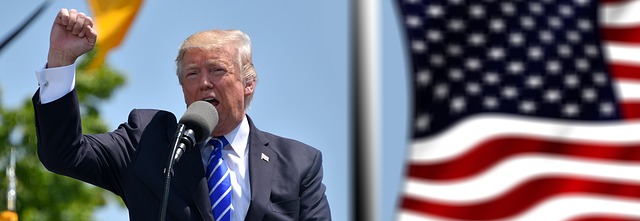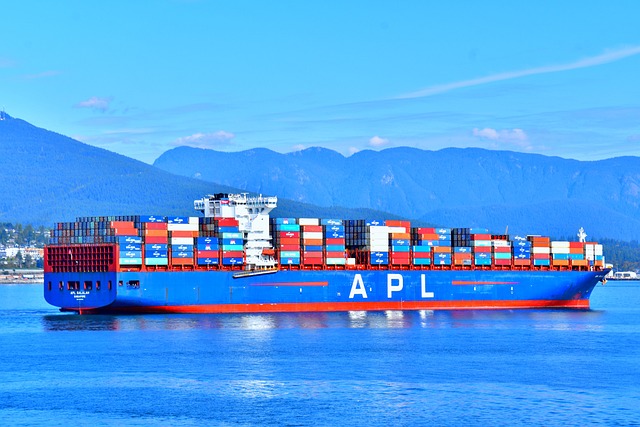Trump Trade Tariffs: MHW Briefing & Chairman’s Opinion

At MHW, our vision is:
‘Empowering people to discover the way to their best life’.
Part of our mission is to provide you with the tools, training and knowledge to stay ahead of the curve, whatever the landscape. In times where markets falter, it can be difficult to see the pathway through the panic of the crowds. This is where your trusted adviser can help.
In this briefing, we aim to inform you on:
• What has caused recent market movements.
• What affect this has had on world economies.
• How markets have reacted.
• What our chairman’s view is.
• How this impacts your own financial journey.
What has happened?
After weeks of anticipation and speculation, President Donald Trump’s ‘Liberation Day’ announcement unveiled trade measures toward the more extreme end of expectations. We’ll avoid reprising what is widely available in the press, but it’s worth a quick reminder of the background behind the executive order.
Early in his second term, President Trump ordered the U.S. Trade Representative (USTR) to investigate potential trade frictions imposed by America’s trading partners, aiming to identify instances where their exports to the U.S. gained an unfair advantage over U.S. exports. He requested a thorough review into not only tariffs, but also non-tariff barriers.
Despite decades of progress in reducing tariffs and trade barriers, there remain frictions, and to some extent these are inevitable.
At the end of March, the USTR’s report, the 2025 National Trade Estimate, highlighted a seemingly global trend: every country exerts protectionist policies. However, the report did not measure the effect of these policies. Instead, it assumed an effective tariff rate which was based upon how large that country’s trade surplus with the U.S. was. Bizarrely, for countries with no trade surplus, or even a trade deficit, the effective tariff rate was assumed to be 10%.
As a result, the U.S. is implementing so-called reciprocal measures.
Specifically, the U.S. will fully reciprocate the 10% effective tariff imposed by 115 countries on U.S. imports. For 75 countries with effective tariffs exceeding 10%, the U.S. will partially reciprocate with tariffs ranging from 10% to 50%.
These tariffs follow the metal imports tariffs President Trump introduced during his first term. This year, he’s raised tariffs on China three times, resulting in a cumulative rate of more than 60% since the start of his first term. This includes tariffs related to fentanyl imports, which also apply to Canada and Mexico. Additionally, sector specific tariffs of 25% have been announced on U.S. imports of steel, aluminium, cars, and car parts.
What is the world economic effect?
There seem to be 2 primary effects:
- Higher prices and inflation
Higher tariffs increase the price of goods imported and sold in the US. These goods could either be used in the manufacturing of goods produced in the US (for example auto components) or sold as finished goods. This will lead to an increase in prices and therefore inflation, which will hit consumer real disposable incomes in the next few quarters. Economists estimate that US inflation may increase by 1% or more. - Impact on growth
The second impact is on growth, and the US GDP growth rate is estimated to potentially fall by more than 1%.
Economists estimate that the average tariff rate on US imports will increase to around 25%, which is worse than expected, and a level not seen since the 1930s. News of retaliation by the US’ trading partners is already emerging.

Market Reaction
Global stock markets over the last few days have fallen sharply because of the US government’s announcements. The speed of the drop has not been seen since the COVID pandemic in 2020.
In currency markets, the US dollar has weakened markedly. Despite the fears for higher inflation, bond yields have fallen, reflecting their ‘safe haven’ status, as well as fears for GDP growth and how this might affect Central Banks’ interest rate policies. Expectations for US interest rate cuts this year have also risen to more than 3 cuts of 0.25%.
Chairman’s View
David Atherton, MHW Chair and investment analyst thinks long-term investors have reason to believe in their own plan and not see this as a reason to run for the hills. David comments:
‘Whilst sharp market movements can be concerning, my key message is ‘Don’t Panic’. History invariably shows that these sharp moves do recover. It’s just a question of how quickly.
For example, the US S&P500 (the global benchmark) fell 36% in six weeks in early 2020, reaching a low in late March. The index had fully recovered by mid-August, less than five months. Crucially, this was due to government action (looser monetary policy). The vaccines for COVID were not announced until November. The S&P in 2020 was up 18.40% overall, when cash yielded 1% or so.
The famous 2008 disaster took four and a half years to recover, but by common consent, this was a much greater global event than the current one.
The key difference to the current situation from previous similar events (COVID in 2020, the global crisis in 2008) is that the current situation is entirely driven by controllable government policy, which can change quickly. We know from his own mouth that President Trump is a negotiator, a dealmaker, and his rhetoric is clear that these tariffs are in response to the treatment the US gets on its exports. In his famous ‘Art of the Deal’ book he explains how his strategy is to go for much more and settle for something in the middle.
We are already seeing early signs of other countries talking about concessions in their policies, which will no doubt, given the Trump style, be loudly proclaimed as ‘wins’, and one would expect the tariffs to be then mitigated. The key point then would be freer trade both ways, which can only be positive for stocks. Of course, Trump’s style suggests the wins must be unequivocal, and although other countries can be stubborn, it is safe to say, given the size of the US economy, he will probably win.
When I say don’t panic, I have to say that we are currently in the middle of this. It is distinctly possible that things may get worse before they get better. In short, the problem will continue until people talk. But given that it is all politics, not external factors, this is likely to be sooner rather than later. A battle of wills, to be sure, but matters entirely controllable can move much faster than those which are not.
The situation with China is more serious and may be the last one to be resolved. But fortunately, most UK investors’ exposure to China is limited, and in any event, the trade war between these two giants has been going on since the previous Trump term (and continued during the Biden administration) and will probably go on for years more. They are both large enough to survive the decades-long battle for world trade hegemony.
The other point to consider is the knee-jerk reaction you often see in these meltdowns. The tariffs are about goods not services, but stocks such as Netflix and Microsoft (who do not import or export goods) have fallen along with everything else. Not every company is affected, and once the dust settles, it is likely that players like this will recover more quickly.
And finally, most British portfolios, of course, are not entirely invested in US stocks. Bonds have not really been affected by this, if anything the pressure to lower interests is helping bond prices (which move inversely to anticipated rates), and surprisingly European stocks have fallen less than their US equivalents. My comments about recovery apply equally to these’.
Personal Impact
With all occurrences of market correction, the impact on your own circumstances is personal to you. The major global stock markets haven’t ever not recovered given time, so right now we don’t see extreme cause for concern. We do believe in helping our clients navigate more challenging parts of their financial journey by focusing on the path rather than the crowd, and we are here to guide you through this. We also encourage you to learn from these experiences as they are what makes us all better prepared for future world events. That said, ‘discovering the way to your best life’ might involve minimising worry and providing you with peace of mind. If this update hasn’t fully helped you with this, we are always on hand to offer further guidance and education, so don’t hesitate to get in touch.
In the background, we’re not resting on our laurels. With such a strong internal investment committee, overseeing a number of investment firms on our panel, we’re in constant communication with them, discussing their strategies and challenging their thinking. In doing so, we lean on professional investment managers to not only navigate market challenges, but always ensure diversity in portfolios that continually meet your needs and circumstances.
Please note, the views of our chairman are personal opinion and do not constitute financial advice.
You can also download this article as a PDF for sharing.
